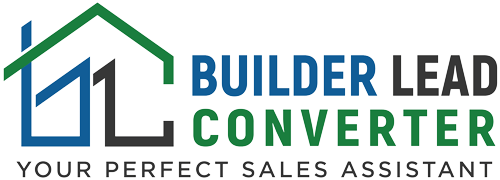Here is a question for you, why don’t we as salespeople like to close? I could pose that question to five different salespeople and most likely get five different answers but I would put money on this reason: the fear of rejection. Let’s take a closer look at the psychology of the close and how we can deal with our own fears.
As a fourth grader I remember times when I wanted to call a certain girl in my class and would sit by the phone for over an hour trying to get up the courage to call. My heart would pound and my hands would sweat. I played the conversation over and over in my head about what she would say when I “asked the question.” She could say yes but what if she said no? It was that fear that paralyzed me from ever making the call!
How things are the same for the new home salesperson. We love to greet, demonstrate, build rapport and qualify but we also become paralyzed when we need to “ask the question” for the sale, reservation or appointment. It is definitely time to lose our inhibitions as today’s buyers will not be closing themselves as they did in the past.
I define closing as the natural progression to a dynamic presentation and demonstration. Closing is not the use of some magical words or phrases at a specific time that trick a customer into buying your product. In order to become great closers, we must focus on what we do prior to asking for the sale. Here is a list of what great closers do on a daily basis:
1. Preparation. Great closers do their market research to make sure they have the right product at the right price. They have explored their community and neighborhood focusing on the benefits of living their. They make sure the selling environment the customers enter is
welcoming and has all the information necessary to make a good decision.
2. Presentation. Great closers prepare their presentations and don’t leave anything to chance. They know how and where they will greet their customers; qualify them and how best to present and demonstrate their homes while creating urgency along the way.
3. Minor closes. Great closers use small “minor” or “test” closes along the way to get customer objections on the table. They know they don’t ask for a final close (the purchase agreement) until they have fully explored the needs of their customer and if their neighborhood and builder can satisfy those needs.
4. Objections. Great closers love objections because they lead to the customer’s hot buttons. They understand that unless they hear objections, the customer will never buy their product. They prepare for objections and have pre-planned answers.
5. Final close. Great closers will have three to four closing strategies that they use at will and can stack on top of one another. They understand that they will have to close five to seven times with most customers in order to get the sale. For them, “no” only means the customer needs more information in order to buy.
Closing begins the moment the customer walks into the model home. It is said nearly 50% of every sales consultation ends without the salesperson closing for the order. We know most new home salespeople are not closing too often but rather not enough. In order to eliminate our fears of rejection, we must improve everything we do in our model homes beginning with the sales environment and moving forward from the way we greet our customers.
Add in some minor closes along the way, handle the objections and ask for the order more than five times.
The next time you are in front of a customer, keep this in mind: In order to help them make a decision, we have to ask how they feel about owning one of our builder’s homes. Then, shut up and listen to what they have to say. You might be amazed to find out they think it is a good idea and want to know how to do just that!





Recent Comments